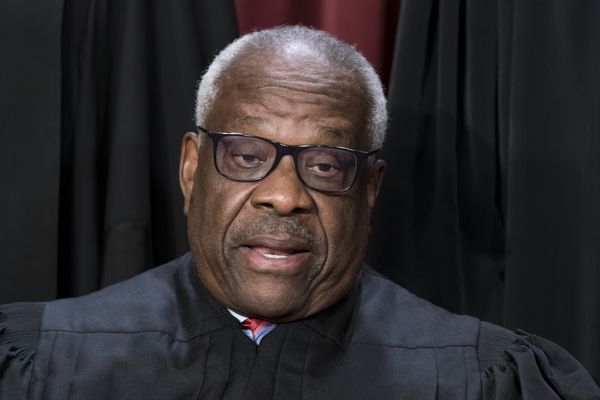
On Friday, April 12, 900 riot police surrounded Berlin’s Palästina Kongress (Palestine Congress), a three-day event organised by a coalition of Palestinian, Jewish and leftist groups. Eight hundred people had booked tickets, though only 250 were permitted into the venue.
Two hours in, police cut power to the building and stormed the stage. They disbanded the conference and arrested three people, including two Jewish activists. At the same time, two speakers — former Greek finance minister Yanis Varoufakis and Ghassan Abu-Sittah, a surgeon and the rector of the University of Glasgow — were prohibited from entering Germany. The remainder of the congress was banned.
Federal Minister of the Interior Nancy Faeser approved of these measures, noting the ministry is “keeping a very close eye on the Islamist scene” and that “anyone who spreads Islamist propaganda and hatred against Jews” can expect to be prosecuted. The ministry refused to comment on what Islamist or antisemitic propaganda is alleged to have been presented, or on the use of “Islamist” to refer to an event at which a quarter of the speakers were Jewish.
I’ve lived in Berlin since 2021 and though I’ve long been critical of Germany’s blinkered approach to the question of Palestine, nothing could have prepared me for the extent of the censorship, repression and anti-Palestine propaganda that began after October 7. Both the German state and the media apparatus have gone into overdrive to prevent pro-Palestine speech, invariably to grossly illiberal effects.
Prior to the congress, German media represented it as a “Jew hater” event, and TVs across Berlin trains showed BZ proclaiming “Antisemiten planen Hass-Gipfel in Berlin” (Antisemites plan a hate summit in Berlin). Following this smear campaign, a German bank froze the bank account of Jüdische Stimme (Jewish Voice), one of the congress’ organising groups, and demanded a full list of its members and their addresses.
As has become common in Germany, pro-Palestine protests over the weekend following the congress were brutally disbanded. Footage shows violent arrests and police assaulting participants, including Jews wearing kippahs.

This has become common over the past six months, which have seen weekly arrests for crimes as minor as holding signs against genocide, wearing keffiyehs, carrying Palestinian flags, saying “from the river to the sea” or posting it to social media. Numerous people have lost work or had events cancelled for expressing pro-Palestine views or criticism of Israel.
Renowned scholars Nancy Fraser and Ghassan Hage lost positions at German institutions, and others, like Judith Butler, have been vilified in German media. Award ceremonies have been cancelled for writers Adania Shibli and Masha Gessen. There have even been calls to defund the Berlinale Film Festival after the Palestinian and Israeli filmmakers behind No Other Land spoke out against Israeli occupation. Hardest hit have been Palestinians, Arabs, people of colour and Jews (the latter making up a quarter of censorship cases in 2023, according to Diaspora Alliance).
The mood in Berlin’s highly international cultural scene is bleak. People are worrying over their visas and others are considering leaving Germany altogether. There is even a movement to boycott the country over its support for Israel and the censorship it enforces over pro-Palestine views.
But this censorship did not begin last October. In 2019, the Bundestag (Germany’s federal Parliament) passed a non-binding resolution designating BDS — the Boycott, Divestment and Sanctions movement — antisemitic. Shortly after, Jüdische Stimme’s bank account was closed because of its support of the movement and the director of Berlin’s Jewish museum was forced to resign over the museum’s tweet sharing an article that criticised the resolution.
The same year, the city of Dortmund revoked a prize for novelist Kamila Shamsie because she supported BDS, and in 2020 the federal antisemitism commissioner barred philosopher Achille Mbembe from giving a speech at an arts festival because he had compared Israel to apartheid South Africa. In recent years, too, there have been proven cases of digital surveillance and smear campaigning against people with pro-Palestine views and a concerning number of Arab journalists — particularly Palestinians — have lost or been forced from their jobs over allegations of BDS- or anti-Israel-related antisemitism.
Such censorship exemplifies a concerning interpretation of the lessons of German memory culture. The country’s commitment to remembering its responsibility for the Holocaust and Germany’s historical responsibility has become synonymous with unquestioning support for Israel, now understood as Germany’s Staatsräson — its “reason of state”. This has meant that, although 85% of antisemitic crimes are committed by the far right, Germany has shifted the blame to migrants — especially those from the Middle East — by interpreting support for Palestine and critique of Israel as inherently antisemitic.
The right has long monopolised on this issue. Indeed, the first anti-BDS resolution was written by Alternative für Deutschland (AfD), a far-right party with neo-Nazi links that has also pushed the idea that migrants are “importing antisemitism” into Germany. Like the anti-BDS resolution, this racist fiction became accepted across Germany’s political spectrum and has been used to justify a recent push to speed up deportations. At the same time, the state of Saxony-Anhalt made recognition of Israel a prerequisite for applying for German citizenship, and a centre-left party, the SPD, wants to revoke citizenship from “antisemites”.
The German media has been pursuing this same racist logic, encapsulated in a telling leaked email: “Free West, fuck the intolerant Muslims” — and in a grotesque call back to Nazi ideology: “Und natürlich: Zionismus über alles.” [And of course: Zionism above everything]. These words, written by Mathias Döpfner, the CEO of Germany’s Axel Springer media group, aptly summarise the position most German media has taken.
AfD is now the second-strongest party in Germany and right-wing groups have infiltrated Germany’s armed forces, security agencies and police. Meanwhile, a 2022 poll found that more than 50% of Germans considered Islam a “threat”. Rather than prevent the rise of the far-right or combat racism and antisemitism, Germany’s pro-Israel anti-antisemitism has allowed the flourishing of a far-right able to direct their racism towards anti-Zionist migrants while exploiting the fight against antisemitism to increasingly fascist ends.
This should serve as a warning for Australians.
As Germany shows, crackdowns on anti-Zionist activism are easily used to usher in repressive policies and actions that contravene basic rights. Moreover, they can provide cover for a dangerous far right that uses migrants and people of colour as scapegoats for its antisemitism. It’s a dire situation and a cruel distortion of Germany’s historical responsibility. But it’s worth remembering that Germany reached this point slowly, one decision at a time. Australians must be vigilant not to allow the same mistakes.







